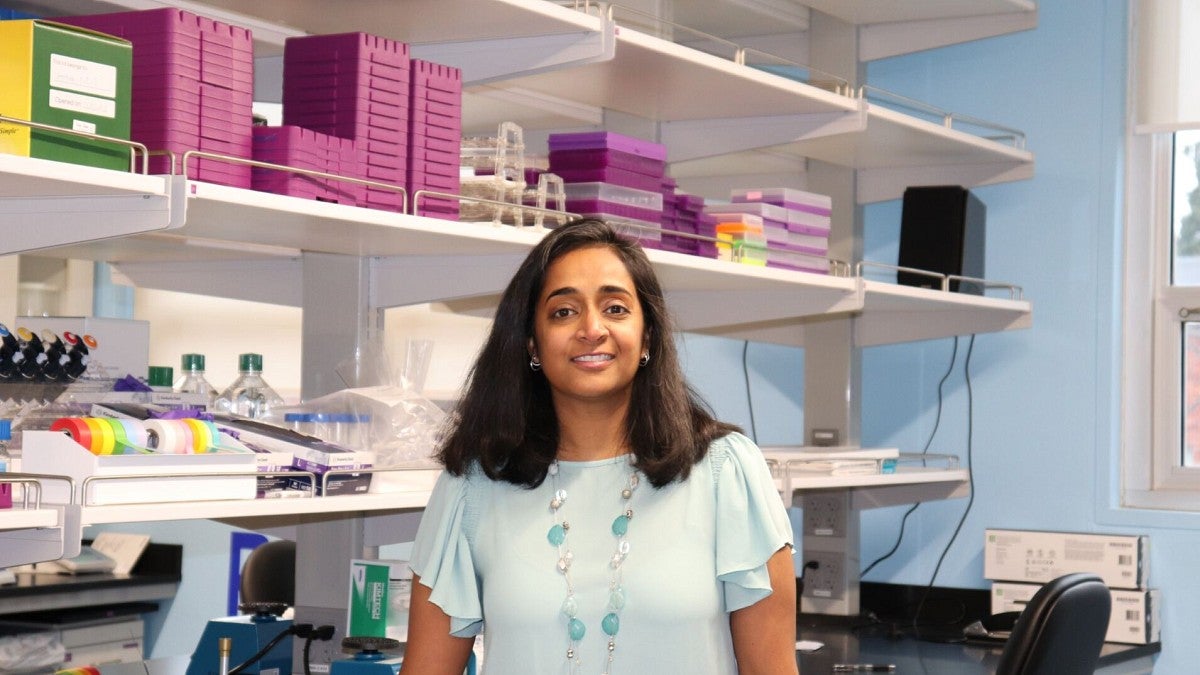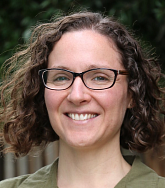
Experiential Learning | Research & Innovation | Community Impact | Career Preparation | Teaching Excellence | 21st Century Liberal Arts | Building Community | Good Vibes | CAS Spotlights | All Stories | Past Issues

'It Gave Me the Confidence to Try': Mentorship at the Core of Research Training Program
Killian Campbell's passion for research sprouted while he was taking classes in microbiology and evolution his junior year at Eatern Washington University. He wanted to continue his studies for a living, but he didn’t have enough research experience to get into a highly competitive graduate program.
“I was late to the game in that regard,” he says. “We didn’t have a lot of research activity going on at our school, and there wasn't a lot of exposure to the types of experiences I needed to pursue my goals.”
Undaunted, he was accepted into a federally funded Postbaccalaureate Research Education Program (PREP) and spent the next year working at a cancer research center.
Now a doctoral student investigating the evolution of host-pathogen interactions at the University of Oregon, Campbell will have the opportunity to pay his success forward when the university launches its own PREP program this summer.
Funded by a nearly $2 million grant from the National Institutes of Health, the University of Oregon Program to Increase Resilience and Enhance Persistence in Biomedical Sciences (UO PREP Bio) will join a network of similar programs across the US aimed at helping promising scholars from historically excluded backgrounds make the transition into rigorous graduate programs.
“There are students coming out of undergraduate programs who aren’t competitive for entering into graduate study because they haven't had the opportunity or access to resources to be competitive,” says Nadia Singh, associate professor of biology and the program’s primary director. “With a year of mentored research, professional development and community building, we can empower students to be successful and build the skills they need to not only gain entry into graduate school, but to succeed in their graduate studies.”
The program will pair participating scholars with UO faculty experts for a year-long mentored research project, during which they'll hone their scientific inquiry skills while building a body of research within the university’s bioscience training labs. They’ll also develop the skills necessary to thrive in a graduate school environment—time management, organization, and the ability to be self-driven.
Critical to the success of the program is its focus on community building, which will help foster a sense of belonging and self-efficacy. The building of strong relationships, not only with mentors but within their peer community, can play a key role in helping students endure the rigors of graduate school—particularly students who may also be battling impostor syndrome or are subjected to daily microaggressions.

“I’m so excited to be able to open up the incredible resources and research at the UO to these students who are positioned to do transformative science if some barriers are removed,” says Rori Rohlfs, associate professor of data science and supporting director for the program. “Creating a post-baccalaureate program is a crucial step to changing science—who's doing science, how we go about science, and what questions are being asked.”
With a heavy focus on mentorship and wraparound support, the program will help scholars find their bearings as scientists by cultivating nurturing mentor-mentee relationships both inside and outside the lab. Each participant will work closely with three mentors: a faculty mentor, a research mentor within the lab they’re working in, and a near-peer mentor—a post-doctoral or career graduate student “who remembers those earlier career stages,” Rohlfs says.
All mentors will receive culturally responsive mentorship training, which “puts a value on who we are and lets us meet people where they are,” says Singh, who is also associate dean for diversity, equity and inclusion for the College of Arts and Sciences. Scholars will also learn how to receive mentorship, an often-overlooked skill that can have a significant impact on long-term career development.
“Professional development in science is so reliant on mentoring and we get no formal training in how to do that,” Rohlfs says. “It leaves too much room for doing a poor job. We don’t want to just assume people can mentor. It’s a skill that’s learned and continually developed.”
The NIH grant also provides scholars with a salary, making the program accessible to college graduates who may not have the financial resources to pursue unpaid research opportunities.
By helping to level the playing field for scholars who have been excluded from careers in science, programs like PREP have the potential to bring much-needed diversity to scientific research, Rohlfs says.
Singh views UO PREP Bio as part of a larger cultural shift at the university, as faculty throughout the College of Arts and Sciences learn how to better support students and graduate researchers from marginalized communities.
“I think this is a really critical transition point in the research pathway, and I think for a predominantly white institution this is a really exciting opportunity for us to do some real good,” she says. “Having an experience like this can be transformative.”
Campbell, who will serve on the program’s advisory committee, hopes to use his own experiences as a PREP scholar to help other students like him succeed in graduate school.
“Being in the PREP program has made me forever thankful for all the wonderful mentors I had during that time,” he says. “It allowed me to gain the skills and insight necessary to get into grad school, taught me about the challenges and joys of being a researcher, and really cemented my desire to go forward.
“It gave me the confidence to try.”
—Nicole Krueger, BA ’99 (journalism), is a communications coordinator for the College of Arts and Sciences.
